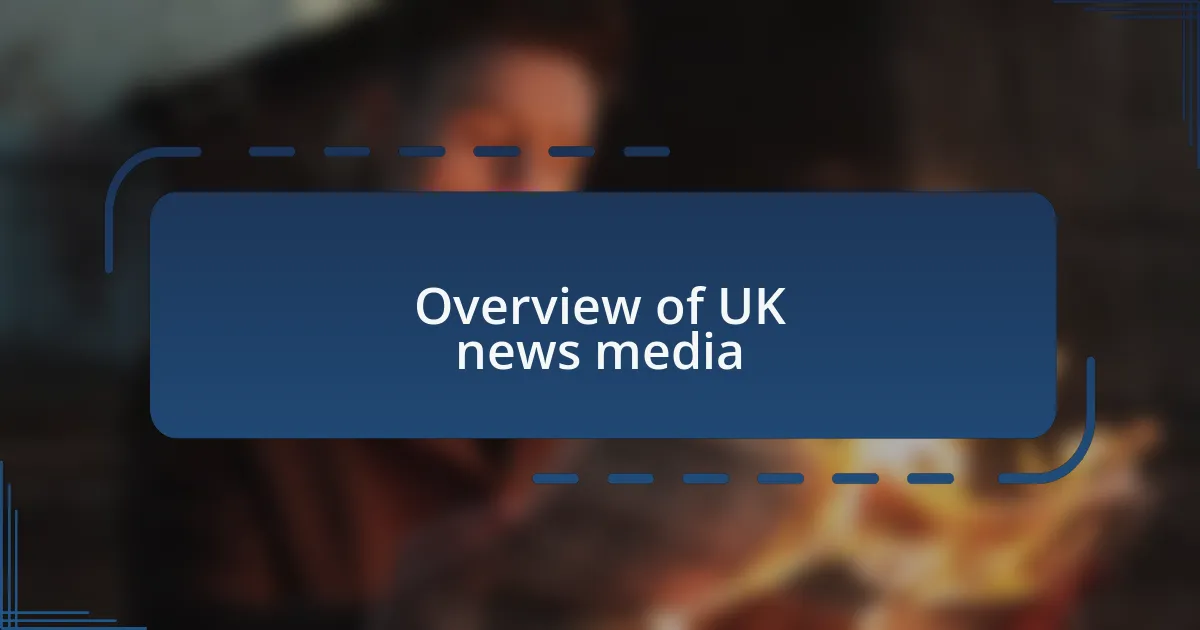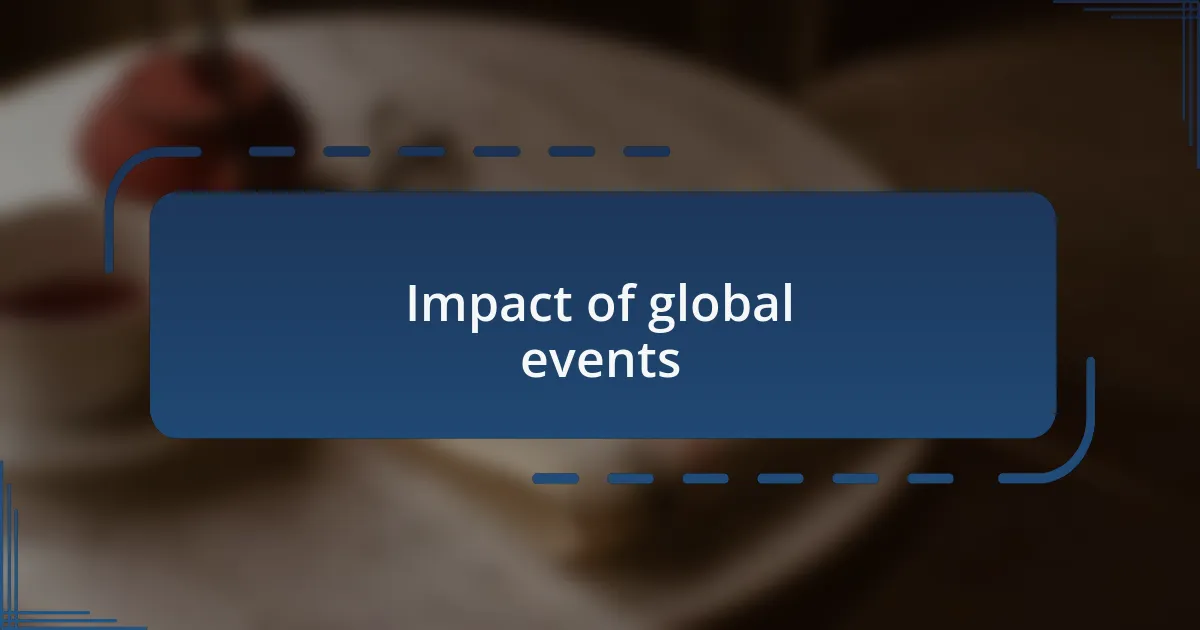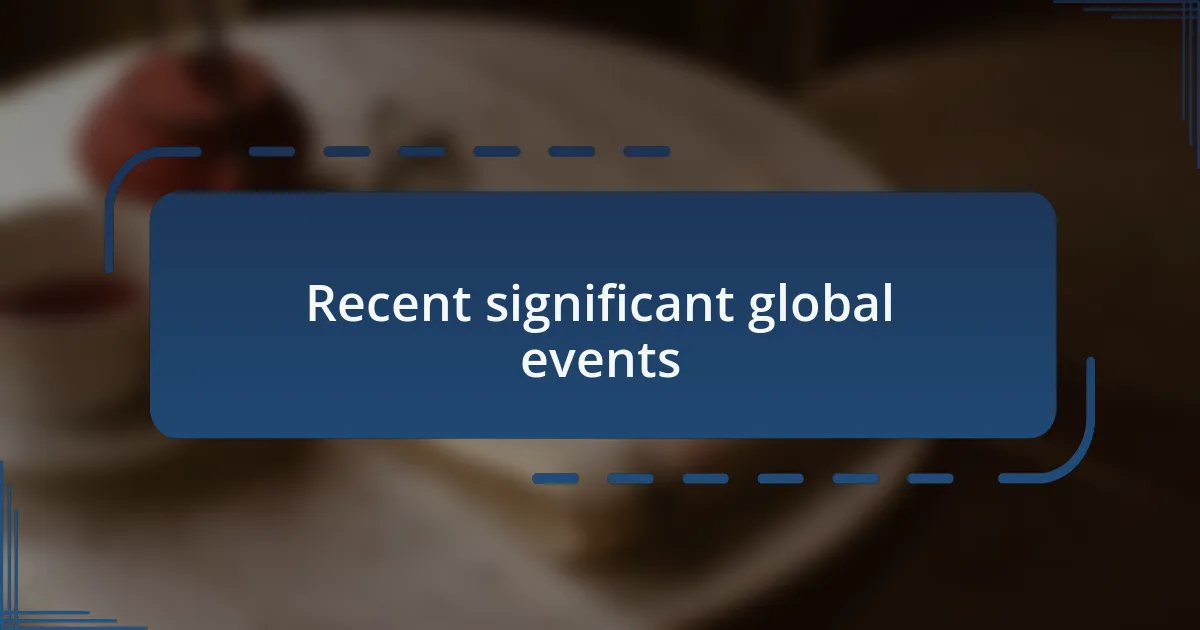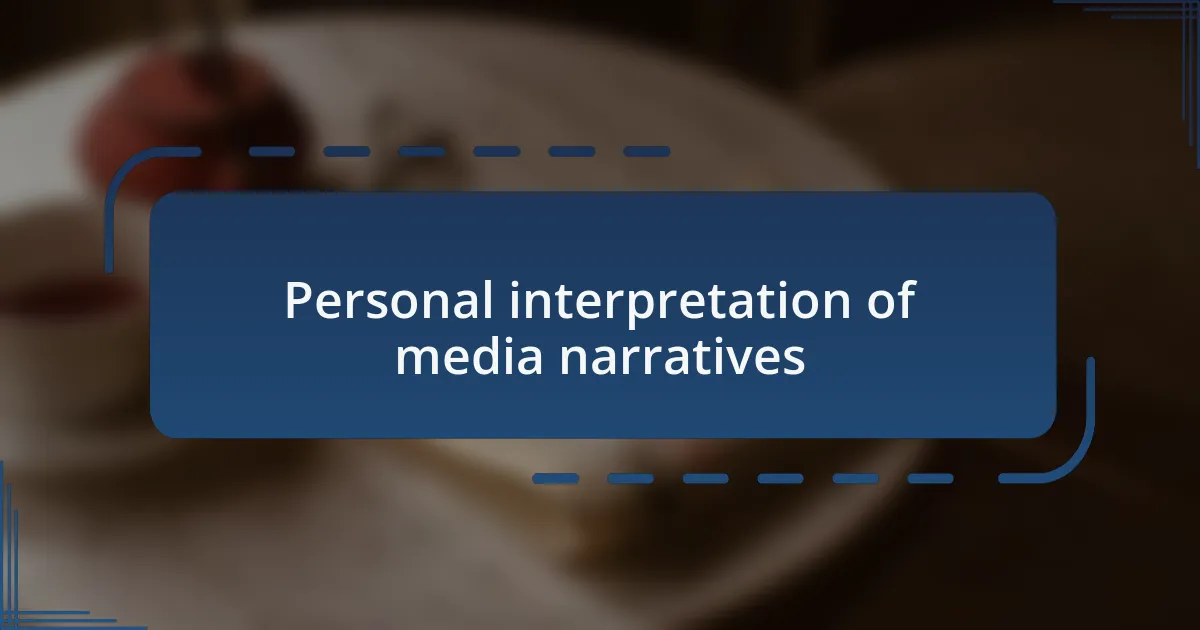Key takeaways:
- The UK’s news media landscape is shifting with the rise of digital platforms and social media, creating both opportunities for information access and challenges due to misinformation.
- Global events, such as the Ukraine conflict and climate change, significantly affect public sentiment and economic stability in the UK.
- The Israel-Hamas conflict and social justice protests highlight the power of media narratives in shaping public empathy and understanding of complex issues.
- Personal reflections on media consumption emphasize the importance of seeking diverse perspectives to grasp the full impact of global narratives.

Overview of UK news media
The UK’s news media landscape is a complex tapestry, woven together by a mix of traditional outlets and emerging digital platforms. Growing up, I remember relying heavily on newspapers like The Guardian and The Times, feeling a sense of connection to the stories that shaped my understanding of the world. But today, the rise of online news has changed how we consume information—do you ever wonder if this shift makes us more informed or just overwhelmed?
Among the myriad of choices, the BBC stands as a stalwart pillar of journalism, valued for its commitment to impartiality. I’ve often turned to BBC News not only for breaking stories but also for in-depth analysis that encourages me to think critically. It makes me reflect: how does a news agency remain a trusted source amidst so much noise?
However, the advent of social media has also brought significant challenges, blurring the lines between genuine news and misinformation. It can be disheartening to see sensational headlines overshadowing impactful stories. Have you noticed how easily fake news can spread? As consumers, we must sharpen our critical thinking skills to navigate this ever-evolving media landscape.

Impact of global events
The impact of global events resonates far beyond national borders, shaping the narratives we consume in the UK. Recently, I noticed how the conflict in Ukraine has not only dominated headlines but also influenced public sentiment regarding defense and foreign policy. It’s fascinating to consider: when we read about such distant struggles, how does it change our perception of safety and security at home?
Economic stability is another area deeply affected by global happenings. For instance, the ongoing supply chain disruptions stemming from various international tensions have led to rising prices here in the UK. I recently went grocery shopping and was struck by the higher costs for everyday items. It made me wonder—how long before these fluctuations affect our daily lives even more dramatically?
Furthermore, events like climate change conferences can inspire a shift in collective consciousness. When I watched coverage of the latest summit, I felt an urgency surrounding environmental responsibility. It’s a reminder that while global issues can feel overwhelming, they also present opportunities for us as individuals to make impactful changes in our communities. Could it be that awareness sparks action?

Recent significant global events
The Israel-Hamas conflict has been thrust into the spotlight recently, igniting discussions that ripple through the UK and beyond. I found myself engrossed in news reports, reflecting on how such tragedies evoke empathy and challenge my understanding of peace and conflict. How does witnessing the suffering of others reshape our sense of justice and responsibility, even from afar?
On a different note, I was struck by the wave of protests advocating for social justice that surfaced globally. It made me think about the power of collective voices; each march seems to echo a universal call for equality and respect. When I attended a local rally, I felt an overwhelming sense of unity and purpose—how often do we get to contribute to something larger than ourselves?
Additionally, the ongoing impacts of natural disasters—like the recent devastating floods in Libya—underscore our vulnerability to climate change. That footage of destruction was heartbreaking, and I couldn’t help but reflect on the resilience of communities. In moments like this, I ask myself: how can we support those affected while also striving to prevent such crises in the future?

Personal interpretation of media narratives
When I absorb media narratives surrounding global events, I often find myself questioning the underlying messages being conveyed. For instance, during the recent Israel-Hamas conflict coverage, I noticed how different outlets framed the narratives, which influenced my emotional response. It’s fascinating, isn’t it? How a single event can unfold so differently depending on the storyteller.
One instance that sticks with me is how local news channels contrasted with international ones in their portrayal of social justice protests. I remember watching live footage from a nearby event that felt intensely personal, while global coverage seemed to dilute that emotion. I’ve wondered—does this disconnect affect our understanding of local struggles? It makes me aware of how crucial it is to seek varied perspectives when interpreting complex situations.
In reflecting on disaster narratives, I often find myself feeling both helpless and motivated. Watching the aftermath of the floods in Libya on my screen, I felt a mix of sorrow and urgency. It prompted me to actively look for ways to contribute—whether through donations or awareness campaigns. Isn’t it interesting how a single story can shift from mere news to a call to action in our lives?